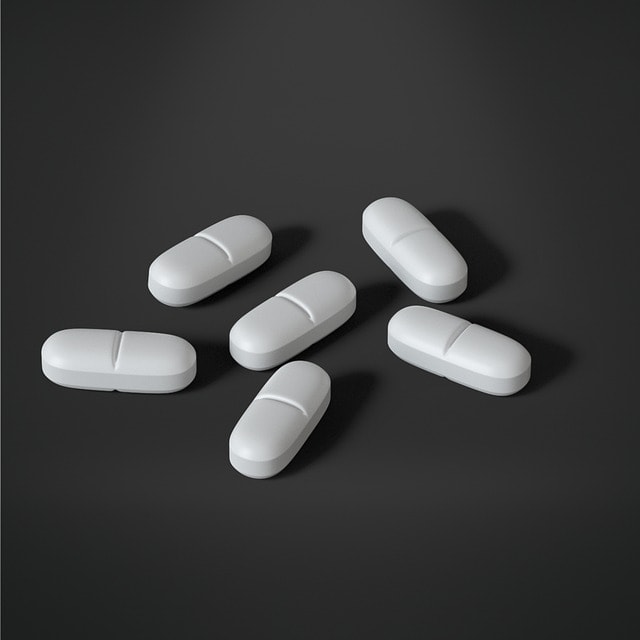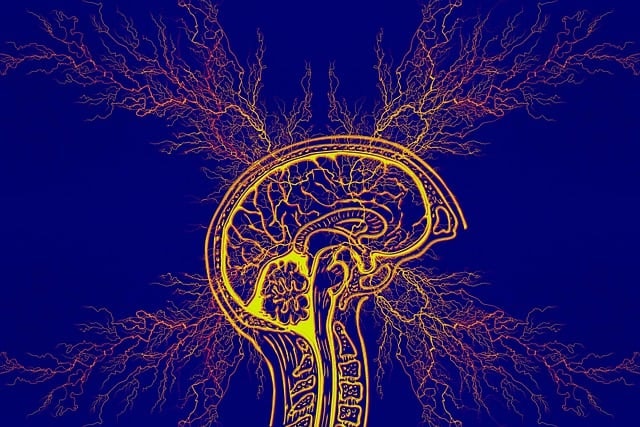Focalin vs Adderall: Best Choice for ADHD Treatment?
When deciding on ADHD treatment, understanding the differences between Focalin and Adderall is crucial. Both medications are effective, but each works in slightly different ways. This article will help you compare Focalin vs Adderall, covering their effects, side effects, and other key considerations to help you make an informed choice.
Key Takeaways
Focalin and Adderall are both effective stimulant medications for treating ADHD, but their active ingredients and effects differ, which may influence individual responses.
Consultation with a healthcare professional is critical in determining the appropriate medication based on personal medical history, symptoms, and potential side effects.
Cost and insurance coverage can significantly affect the choice between Focalin and Adderall, with generic alternatives offering more affordable options for patients.
Focalin vs Adderall: Best Choice for ADHD Treatment?
When it comes to treating ADHD, Focalin and Adderall are two of the most commonly prescribed medications. Each has proven effective in managing the symptoms of ADHD, but they do so in slightly different ways. Understanding these differences is crucial for tailoring ADHD treatment to individual needs.
The choice between Focalin and Adderall often comes down to personal preferences and how each individual responds to the medication. Some may find Focalin to be more effective, while others might prefer Adderall. Consulting with a healthcare professional can help determine the most suitable option for each person.
Introduction
Distinguishing between Focalin and Adderall helps tailor ADHD treatment to individual needs. Each medication has unique attributes and effects, making the choice complex. Exploring the specifics of each medication enables individuals to make informed decisions that best suit their needs.
Consulting a healthcare professional is essential for choosing between Focalin and Adderall. A healthcare provider offers valuable insights into how each medication works and its potential effects, considering the individual’s unique medical history and symptoms.
ADHD medications’ effectiveness can vary by individual, highlighting the importance of understanding how each works. This guide offers a comprehensive comparison of Focalin and Adderall, aiding in making an informed decision for your ADHD treatment plan.
Understanding ADHD Medications
ADHD medications, including Focalin and Adderall, are central nervous system stimulants commonly prescribed to manage ADHD symptoms. These medications help improve focus, attention, and impulse control, which are often challenging for individuals with ADHD.
These stimulant medications treat ADHD by enhancing dopamine and norepinephrine activity in the brain. Understanding their mechanism can offer valuable insights into their effectiveness, guiding the choice between Focalin and Adderall.
What Is ADHD?
Attention Deficit Hyperactivity Disorder (ADHD) is characterized by difficulties with focus, excessive movement, and impulsive behavior. These symptoms can significantly disrupt daily functioning and impact various aspects of life, including academic performance, work, and relationships.
The diagnosis of ADHD involves a comprehensive evaluation, considering symptoms across multiple settings. It is diagnosed based on symptoms that are significantly more pronounced than expected for a person’s age, requiring a tailored treatment approach to manage the condition effectively.
Role of Stimulant Medications
Stimulant medications like Focalin and Adderall work by enhancing dopamine and norepinephrine activity in the brain. These neurotransmitters are crucial for attention and impulse control, which are often deficient in individuals with ADHD. By increasing their levels, these medications help improve focus, attention, and behavior.
While both Focalin and Adderall are stimulants, they differ in active ingredients and effects. Focalin contains dexmethylphenidate, whereas Adderall consists of mixed amphetamine salts. Despite these distinctions, both medications effectively manage ADHD symptoms.
The effects of stimulant medications typically begin shortly after ingestion and can last several hours. This immediate impact makes them a primary approach in treating ADHD, providing significant improvements in focus, attention, and impulse control for many individuals.
Comparing Focalin and Adderall
Both Focalin and Adderall effectively treat ADHD, but they contain different active ingredients. Focalin contains dexmethylphenidate, while Adderall consists of mixed amphetamine salts. Contrary to a common myth, both medications have comparable efficacy for ADHD treatment.
Personal preferences and individual responses often dictate the choice between these medications. Some may find Focalin more effective, while others might prefer Adderall. Consulting a healthcare professional can help determine the most suitable option.
Active Ingredients and Drug Class
Focalin is known for containing dexmethylphenidate, while Adderall contains amphetamine salts. Both medications belong to the same drug class as central nervous system stimulants, which are commonly prescribed for ADHD. Understanding the differences in their active ingredients, including Adderall Focalin, is crucial for personalized ADHD treatment.
Although both belong to the same drug class, Focalin and Adderall differ in composition. Focalin contains dexmethylphenidate, offering a targeted treatment option, while Adderall contains a mixture of amphetamine and dextroamphetamine, providing a broader approach to managing ADHD symptoms.
How They Work
Both Focalin and Adderall increase levels of norepinephrine and dopamine, which are crucial for attention and impulse control. Focalin is often considered a more targeted option compared to Adderall for treating ADHD, providing a focused approach to symptom management.
Adderall has a longer track record of effectiveness and safety, especially in pediatric patients. While Focalin is recognized as effective for adults, Adderall is often considered more effective for adults with ADHD.
Approved Uses and Off-Label Applications
Focalin is FDA-approved for treating ADHD symptoms, behavior problems, and listening skills. The food and drug administration also approves Adderall for ADHD, which has the added approval for treating narcolepsy, making it a versatile option for multiple conditions.
While Focalin is not registered for treating narcolepsy, it may be used off-label for this purpose. Additionally, Focalin may produce fewer side effects in some adults compared to Adderall, making it a viable option for those experiencing adverse effects with Adderall.
Dosage Forms and Administration
Focalin is available in both immediate-release and extended-release forms, allowing for consistent administration and flexible dosing schedules. The extended-release dosages for Focalin XR include various strengths, providing options to tailor treatment to individual needs.
Adderall is available in two forms: immediate-release and extended-release. Immediate-release Adderall can be taken two to three times a day, while the extended-release version offers once-daily dosing, providing convenience and sustained symptom control.
Immediate Release vs. Extended Release
Adderall’s immediate-release tablets are typically taken multiple times throughout the day, while the extended-release version is designed for once-daily dosing. This flexibility allows for tailored treatment schedules based on individual needs and preferences.
Immediate-release (IR) and extended-release (ER) are two delivery methods for ADHD medications like Adderall. IR formulations provide quick symptom relief, while ER formulations offer sustained effects throughout the day, reducing the need for multiple doses.
Dosing Guidelines
Proper dosing is crucial for managing ADHD symptoms and minimizing side effects. For children, Focalin’s dosing schedule typically begins at lower doses, which can be gradually adjusted based on therapeutic response and individual needs.
The dosing schedule for adults may differ, requiring careful consideration of individual response and side effects, with adjustments as necessary. Monitoring is essential to ensure that the maximum doses are not exceeded while achieving effective symptom control.
Side Effects and Warnings
Focalin and Adderall carry a boxed warning, indicating significant risks associated with their use. Misuse of these medications can lead to severe cardiovascular and blood pressure issues, underscoring the importance of using them under medical supervision.
Certain medical situations should be avoided when taking Focalin or Adderall, including conditions affecting the heart and blood pressure. Before starting new medications while on Focalin or Adderall, obtaining approval from your healthcare provider is advised to avoid adverse effects.
Common Side Effects
Both Focalin and Adderall have common side effects, including:
nausea
insomnia
headache
stomach pain
These side effects are shared due to similar effects on the central nervous system. In children, adverse effects such as decreased appetite and insomnia are particularly noted.
Understanding these common side effects helps manage expectations and prepare for potential reactions when starting either Focalin or Adderall. Always consult a healthcare provider to address any concerns and discuss possible mitigation strategies.
Serious Risks
Both Focalin and Adderall are classified as Schedule II controlled substances due to their potential for abuse and dependence. If struggling with dependence on Focalin, seeking immediate medical assistance is crucial. Serious side effects can include fast or irregular heartbeat, indicating severe health issues needing prompt medical attention.
Potential consequences of stimulant misuse include heart attack, stroke, sudden death, trouble sleeping, irritability, personality changes, and psychotic symptoms. If severe side effects occur with either Focalin or Adderall, promptly notify your healthcare provider or seek medical attention.
Special Precautions
Individuals with high blood pressure should exercise caution when taking these medications. Those with a history of heart problems should be closely monitored to prevent serious cardiovascular issues. Informing your healthcare provider about any pre-existing conditions is essential for safe use.
Informing your healthcare provider about all medicines, including prescription, OTC drugs, and supplements, is crucial when taking Focalin or Adderall to avoid adverse drug interactions.
Drug Interactions
Focalin and Adderall share common drug interactions that can impact cardiovascular functions. Combining these medications can enhance their effects on blood pressure and heart rate, which can be dangerous. Both are classified as Schedule II controlled substances by the DEA, highlighting their potential for misuse and dependency.
Understanding these drug interactions is crucial for optimizing ADHD treatment and managing potential risks. Always consult a healthcare provider before combining these medications with other drugs to ensure safety and efficacy.
Similar Drug Interactions
Common drug interactions for Focalin and Adderall include blood pressure medications and antidepressants. Taking Adderall with alcohol can elevate the risk of cardiovascular complications, making it important to avoid such combinations.
Understanding these similar drug interactions allows individuals to take precautions to prevent adverse effects and ensure safe use of their ADHD medications. Consulting a healthcare provider about potential interactions is essential for effective ADHD management.
Unique Interactions
Focalin can uniquely interact with medications affecting metabolism, such as certain antidepressants and antipsychotics. These interactions can lead to increased side effects or reduced efficacy when Focalin is taken alongside those medications.
Adderall exhibits unique interactions with other stimulant medications, intensifying cardiovascular side effects. Additionally, Adderall may interact negatively with hypertension medications, potentially leading to serious complications. Understanding these unique drug interactions is crucial for optimizing ADHD treatment and managing potential risks effectively.
Cost and Insurance Coverage
The cost of ADHD medications can vary significantly based on whether the medication is brand-name or generic. The cost for generic dexmethylphenidate, the active ingredient in Focalin, ranges from $31 to $55 for 100 tablets, while 100 extended-release capsules cost between $282 and $582. In contrast, the cost of brand-name Adderall for 100 immediate-release tablets is $1,139, while Adderall XR (extended release) for 100 capsules is $760.
Factors influencing the cost of both Focalin and Adderall include formulation (brand or generic), dosage, and quantity. Choosing a generic alternative can significantly reduce the cost of ADHD medications.
Brand vs. Generic
The cost range for brand-name Focalin is between $81 to $156 for 100 immediate-release tablets and $1,400 to $1,656 for 100 Focal XR tablets. The price of generic Focalin is approximately $31 for 100, 2.5 mg tablets, while Adderall ranges from $24 to $63 for 100 immediate-release tablets.
Choosing a generic alternative is an effective way to reduce the cost of ADHD medications. Medication prices can fluctuate greatly due to supply and demand factors, so it is always a good idea to compare prices and consult with a pharmacist.
Insurance Factors
Without insurance, 100 capsules of 10mg Adderall XR can cost around $759.54. The cost of 100 tablets of 5mg immediate-release Adderall can reach approximately $1,139, depending on the pharmacy. Most insurance plans cover Focalin, making it a more accessible option for many patients.
Pharmacists can help calculate the cost of a prescription for ADHD medication, ensuring that patients are aware of their options and can make informed decisions based on their insurance coverage and budget.
Effectiveness Across Age Groups
Focalin tends to be more effective for younger patients, demonstrating considerable efficacy in children and adolescents. Adderall, on the other hand, may have better efficacy in adults, making it a common prescription for managing ADHD symptoms in this age group.
Understanding the effectiveness of these medications across different age groups can help tailor treatment plans to individual needs, ensuring the best possible outcomes for patients of all ages.
Children and Adolescents
Focalin is generally more effective for younger patients, whereas Adderall might be preferable for adults. Data suggests that methylphenidate (Focalin) has been widely studied for efficacy in younger patients, demonstrating considerable effectiveness. In children, both Focalin and Adderall have shown effectiveness, but Focalin may yield better results depending on individual response.
CNS stimulants can affect growth; adolescents will be monitored for this during treatment. Incorporating behavioral therapy alongside medication can further enhance treatment outcomes for children and adolescents with ADHD.
Adults
Adderall is commonly prescribed for adults with ADHD as it is found to be more effective compared to other medications. Amphetamines, such as Adderall, demonstrate greater effectiveness for adults diagnosed with ADHD.
Adult patients often experience a significant reduction in ADHD symptoms when treated with methylphenidate drugs formulations. Higher dosages of methylphenidate are generally linked to improved treatment responses in adults with ADHD, providing effective symptom management and improved daily functioning.
Choosing the Right Medication
When choosing an ADHD medication, it is essential to consider all possible factors to avoid negative outcomes. Both Focalin and Adderall have a high potential for abuse and dependence, making it crucial to use them under medical supervision. Health issues related to the misuse of these medications include addiction, dependence, and serious health consequences.
Consulting with a healthcare provider can help determine the most suitable medication based on individual medical history, symptoms, and potential risks. Misuse of Adderall or Focalin can lead to addiction, overdose, heart attack, stroke, and even sudden death, so it’s important to follow the prescribed dosage and guidelines.
Personal Medical History
Discussing any pre-existing health conditions is crucial before deciding on Focalin or Adderall. Medical history and current symptoms should be thoroughly discussed with a healthcare provider when choosing between these medications. Healthcare providers weigh various personal factors and previous treatments while prescribing ADHD medication.
Insurance coverage is a critical factor influencing the choice of ADHD medication for many patients. Ensuring that the chosen medication is covered by insurance can significantly reduce the financial burden and make treatment more accessible.
Healthcare Provider Consultation
Consulting a healthcare provider is essential before using Adderall or Focalin with other drugs. Regular follow-ups with a healthcare provider ensure proper monitoring of medication effectiveness and side effects. Before starting Adderall, consult with a healthcare provider about medications or supplements to avoid adverse interactions.
Healthcare providers are responsible for personalizing the ADHD treatment plan, taking into account the individual’s medical history, symptoms, and potential risks. The doctor ultimately decides whether Focalin or Adderall is the right medication for a patient, ensuring the best possible outcomes.
Summary
In summary, both Focalin and Adderall are effective options for treating ADHD, but they differ in their active ingredients, side effects, and drug interactions. Focalin contains dexmethylphenidate, while Adderall consists of mixed amphetamine salts, offering different approaches to managing ADHD symptoms. The choice between these medications often depends on personal preferences and how individuals respond to each medication.
It is essential to consider various factors, including medical history, potential risks, and insurance coverage, when choosing the right medication for ADHD. Consulting with a healthcare provider can help determine the most suitable option based on individual needs and circumstances.
Ultimately, personalized ADHD treatment is key to managing symptoms effectively and improving daily functioning. By understanding the differences between Focalin and Adderall, individuals can make informed decisions and achieve the best possible outcomes for their ADHD treatment.
The main difference between Focalin and Adderall lies in their active ingredients; Focalin contains dexmethylphenidate, whereas Adderall consists of mixed amphetamine salts. This results in differing effects and potential side effects on individuals.
Yes, both Focalin and Adderall pose serious risks, including abuse, dependence, cardiovascular issues, and severe health consequences like heart attack and stroke. It is essential to use these medications under strict medical supervision.
Focalin and Adderall effectively treat ADHD by elevating norepinephrine and dopamine levels in the brain, thereby enhancing focus, attention, and impulse control. Consequently, these medications improve overall behavior in individuals with ADHD.
Common side effects of Focalin and Adderall include nausea, insomnia, headache, and stomach pain, as both medications affect the central nervous system similarly. It is important to monitor these effects during treatment.
Consulting a healthcare professional is essential in choosing between Focalin and Adderall for ADHD treatment, as they can assess your medical history, symptoms, and individual response to medications. This collaborative approach will help determine the most suitable option for your needs.












